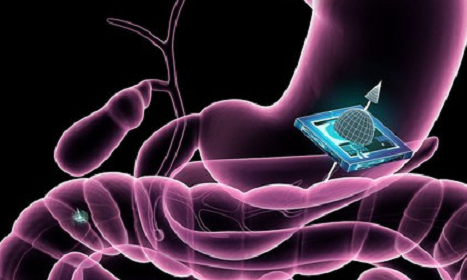Researchers at Caltech develop a prototype miniature medical device that could ultimately be used in “smart pills” to diagnose and treat diseases. What makes the new technology is that its location can be precisely identified within the body, something that proved challenging before.
Washington (ISJ) – Researchers at California Institute of Technology, Caltech have developed a prototype miniature medical device that could ultimately be used in “smart pills” to diagnose and treat diseases. A key to the new technology—and what makes it unique among other microscale medical devices—is that its location can be precisely identified within the body, something that proved challenging before.
“The dream is that we will have microscale devices that are roaming our bodies and either diagnosing problems or fixing things,” said Azita Emami, Professor of Electrical Engineering and Medical Engineering and Heritage Medical Research Institute Investigator, who co-led the research along with Assistant Professor of Chemical Engineering and Heritage Medical Research Institute Investigator Mikhail Shapiro. “Before now, one of the challenges was that it was hard to tell where they are in the body.”
A paper describing the new device appears in the September issue of the journal Nature Biomedical Engineering.
Called ATOMS, which is short for addressable transmitters operated as magnetic spins, the new silicon-chip devices borrow from the principles of magnetic resonance imaging (MRI), in which the location of atoms in a patient’s body is determined using magnetic fields. The microdevices would also be located in the body using magnetic fields—but rather than relying on the body’s atoms, the chips contain a set of integrated sensors, resonators, and wireless transmission technology that would allow them to mimic the magnetic resonance properties of atoms.
“A key principle of MRI is that a magnetic field gradient causes atoms at two different locations to resonate at two different frequencies, making it easy to tell where they are,” said Shapiro. “We wanted to embody this elegant principle in a compact integrated circuit. The ATOMS devices also resonate at different frequencies depending on where they are in a magnetic field.”
“We wanted to make this chip very small with low power consumption, and that comes with a lot of engineering challenges,” said Emami. “We had to carefully balance the size of the device with how much power it consumes and how well its location can be pinpointed.”
The researchers say the devices are still preliminary but could one day serve as miniature robotic wardens of our bodies, monitoring a patient’s gastrointestinal tract, blood, or brain. The devices could measure factors that indicate the health of a patient—such as pH, temperature, pressure, sugar concentrations—and relay that information to doctors. Or, the devices could even be instructed to release drugs.
“You could have dozens of microscale devices travelling around the body taking measurements or intervening in disease. These devices can all be identical, but the ATOMS devices would allow you to know where they all are and talk to all of them at once,” said Shapiro. He compares it to the 1966 sci-fi movie Fantastic Voyage, in which a submarine and its crew are shrunk to microscopic size and injected into the bloodstream of a patient to heal him from the inside—but, as Shapiro explained, “instead of sending a single submarine, you could send a flotilla.”
The idea for ATOMS came about at a dinner party. Shapiro and Emami were discussing their respective fields—Shapiro engineers cells for medical imaging techniques, such as MRI, and Emami creates microchips for medical sensing and performing actions in the body—when they got the idea of combining their interests into a new device. They knew that locating microdevices in the body was a long-standing challenge in the field and realized that combining Shapiro’s knowledge in MRI technology with Emami’s expertise in creating microdevices could potentially solve the problem. Monge was enlisted to help realize the idea in the form of a silicon chip.
“This chip is totally unique: there are no other chips that operate on these principles,” said Monge, “integrating all of the components together in a very small device while keeping the power low was a big task.” Monge did this research as part of his PhD thesis, which was recently honoured with the Charles Wilts Prize by Caltech’s Department of Electrical Engineering.
The final prototype chip, which was tested and proven to work in mice, has a surface area of 1.4 square millimeters, 250 times smaller than a penny. It contains a magnetic field sensor, integrated antennas, a wireless powering device, and a circuit that adjusts its radio frequency signal based on the magnetic field strength to wirelessly relay the chip’s location.
“In conventional MRI, all of these features are intrinsically found in atoms,” said Monge. “We had to create an architecture that functionally mimics them for our chip.”


